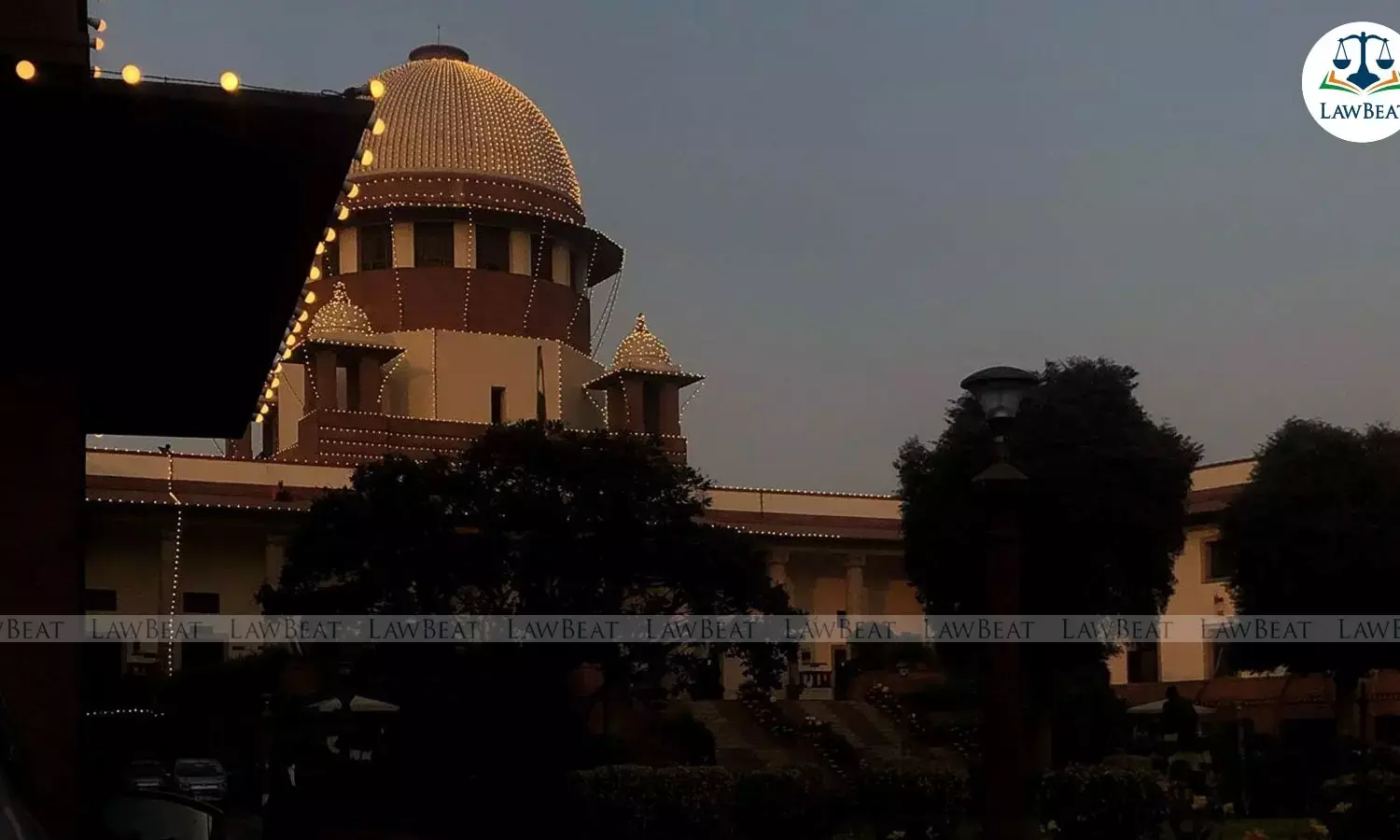Supreme Court Ends 16-Year Marriage, Says Law Cannot Bind Lifeless Relationships

Supreme Court of India Building (Evening)
The Supreme Court has held that marriage is an institution founded on dignity, mutual respect, and companionship, and when these essential elements are permanently lost, compelling a couple to remain legally bound serves no meaningful purpose.
Delivering a significant verdict in Pradeep Bharadwaj vs Priya, the apex court on July 15, 2025, granted divorce to a man who had been separated from his wife for the past sixteen years. The top court invoked its constitutional powers under Article 142 of the Constitution of India to dissolve the marriage, noting that the relationship had reached a point of irretrievable breakdown.
A bench of Justices Vikram Nath and Sandeep Mehta observed that the husband and wife had been living apart since October 2009, shortly after their marriage was solemnised in May 2008 under Hindu rites and ceremonies. A son was born to them in March 2009, who has remained in the sole care and custody of the wife.
The couple’s relationship, the court said, had been marred by prolonged estrangement, bitterness, and litigation. “Both parties have spent the prime of their youth entangled in this marital discord,” the bench noted, adding that reconciliation was not a viable path forward.
The husband had initially sought divorce before the Family Court, alleging cruelty by the wife and claiming she demanded the transfer of ownership of a property owned by his mother. However, the Family Court rejected his petition on November 23, 2017, finding the husband’s allegations unconvincing and unsupported by evidence.
Challenging this order, the man approached the Delhi High Court, which too dismissed his appeal on February 26, 2019, stating that the husband had failed to make out a case for divorce either on grounds of cruelty or desertion.
Before the Supreme Court, the appellant argued that the prolonged separation of more than fifteen years had created a situation where any hope of reviving the marriage had vanished. He pointed to the criminal case of cruelty and dowry harassment filed by the wife, in which he and his family were later acquitted, as evidence of the toxic nature of their relationship.
The court agreed with the husband’s contention and found merit in invoking its constitutional powers to dissolve the marriage. It cited the 2023 precedent in Amutha vs A.R. Subramaniam, where the top court had ruled that the welfare and dignity of both spouses must be preserved, and that continuing a dead marriage only results in psychological distress and unnecessary litigation.
The bench stated:
“It is as clear as daylight that the continuance of this marriage would only result in further animosity and unnecessary litigation between the parties. Such a forced union runs contrary to the purpose of matrimonial law, which envisions companionship, peace, and shared responsibilities.”
Significantly, the court underscored that compelling a man to remain married to a woman who had filed and pursued false criminal charges against him and his family was not only unjust but also incompatible with the principles of fairness and dignity that underlie Indian family law.
The judgment highlighted that despite the long separation, the legal system had offered no real resolution to either party, and that it was now time to allow both individuals to lead their lives with dignity and peace.
“We are of the belief that it is in the best interest of both the parties and their minor child that they be allowed to lead their lives independently and peacefully, free from the shadow of prolonged and futile legal battles,” the court observed.
Exercising its extraordinary powers under Article 142, the Supreme Court granted divorce on the ground of irretrievable breakdown of marriage.
At the same time, the court showed sensitivity towards the economic realities of the respondent-wife and the minor son. Noting that the husband is employed as a clerk in a private firm and the wife is a homemaker, the court enhanced the maintenance amount from Rs 7,500 to Rs 15,000 per month for the wife and child.
This judgment marks yet another instance of the apex court recognising irretrievable breakdown as a legitimate ground for divorce, even though it is not explicitly codified under the Hindu Marriage Act, 1955. The court has previously expressed the need for Parliament to formalise this principle into statutory law, given the growing number of cases where dead marriages continue due to procedural or evidentiary hurdles.
By giving precedence to human dignity, mental well-being, and judicial realism, the court has once again reinforced that matrimonial law must serve the living relationships it governs, not just legal technicalities.
Case Title: Pradeep Bharadwaj vs Priya
Judgment Date: July 15, 2025
Bench: Justice Vikram Nath and Justice Sandeep Mehta
